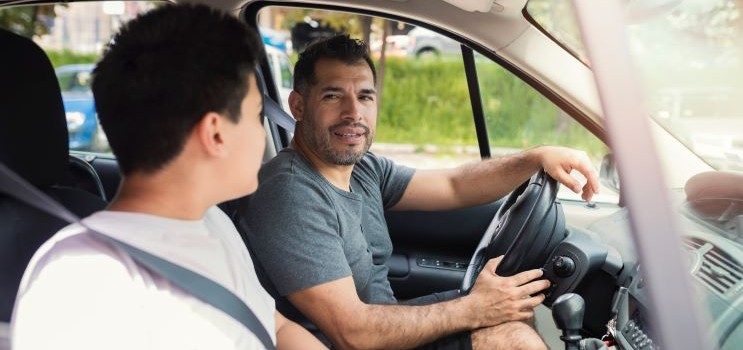
It's so important for parents and guardians to talk about gambling with their young ones, and to educate them about the potential risks involved.
When you start the conversation with your children consider where their interests lie, for example are they more into sports or gaming?
Here are some suggested conversation openers:
- Ask them to tell you about ways they or their friends are gambling
- Ask if they feel pressure from peers to gamble
- Ask if they have come across advertising by betting companies online
- Ask about their in-game purchases and their take on loot boxes
Once you have started the conversation you can talk to them about key gambling messages and dispel myths they may have about gambling:
- Talk to them about the legal age for gambling and the reasons why gambling is harmful for youth. Teens are actually at higher risk of running into problems with gambling. Because often teens are exposed to gambling before they’re of legal age in the form of casino-style games on social networking sites, doing dares or challenges for money, and playing poker with friends. The early exposure makes teens less likely to see gambling as an activity that can lead to a problem later on.
- Talk to them about how gambling can affect their brain: their developing brains and pre-frontal cortex is still not fully grown until age 25, making it harder now for young people to assess risk when they do gamble.
- Tell them that gambling is not an easy way to make money. Talk to your children about house advantage and the reality of gambling as an industry: it exists to make a profit.
- Explain to them the rules of probability: the odds of winning do not change no matter how long you play or how much you may have lost. Advise them to set spending limits in advance and caution them against chasing losses.
- Talk to them about sports betting: let them know that it is a myth that knowing a sport well will improve your chances of winning. Chance always comes into play and talk to them about what influences winning.
- Talk to them about playing free casino style games online: warn them that these games allow more wins than real life casino games, and agree on setting time limits on play and spending limits to avoid compulsive behaviours.
- Talk to them about betting on e-sports (professional gaming competitions) and spending on virtual items, like loot boxes, in games and the links to gambling.
- Tell them to be cautious about online gambling and advertising they will see. Explain to them how betting companies use free bets and special offers in emails or through social media ads to entice people to join up and ultimately spend their own money.
- Explain to them that gambling can be addictive. They may be more familiar with the concept of substance addiction but explain to them that gambling has the same effect on the brain. It causes a similar “rush” or “high” and overtime tolerance levels are increased and impulse control decreased. This causes the addict to gamble more and more without taking into account the risks involved.
- Highlight the cautionary stories of people who have experienced gambling harm: and that they come from all walks of life and all age groups. A number of books by gamblers in recovery are available, as well as YouTube videos of interviews with recovering gamblers. Click here to view a few from our web page.
- Encourage them to look out for their friends and talk to their peers about the risks of gambling.
- Acknowledge that gambling can be a form of escape for people who are feeling lonely or isolated. Let them know who they can talk to if they need help.
Parents, Guardians and Youth can all find help and support through the 24/7 PEI GAMBLING SUPPORT LINE at #1-855-255-4255. Island based counsellors will be happy to help.
References:
-
Extern Problem Gambling: https://www.problemgambling.ie/youth-gambling-ireland.html
-
Responsible Gambling Council (RGC): https://www.responsiblegambling.org/for-youth-and-young-adults/for-youth/impact-of-gambling/